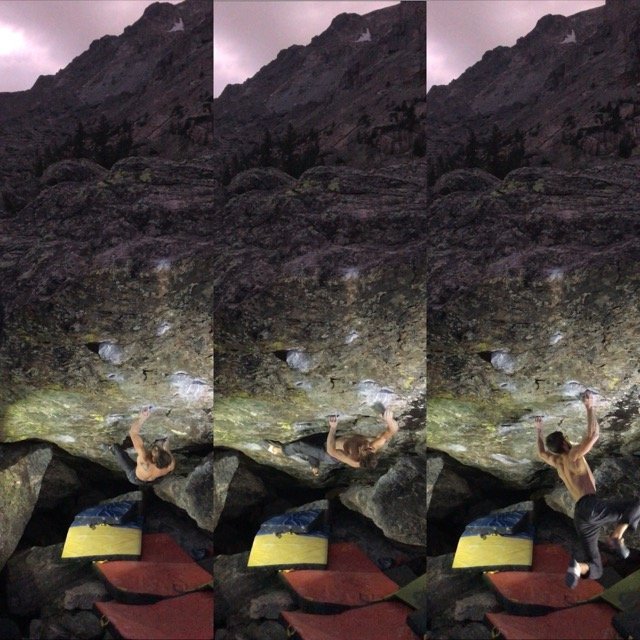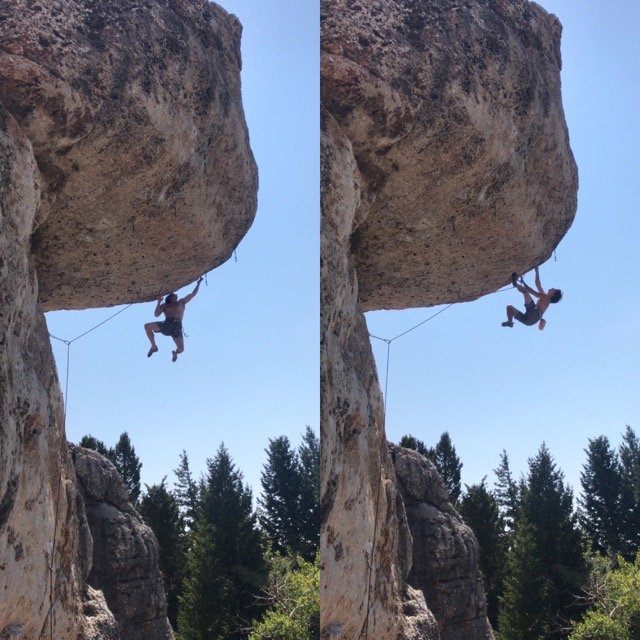If Knowledge Was Power, We'd All Climb V15

I recently heard someone describe understanding as the intersection of knowledge and action.
Know-it-alls: They can expound on the pros and cons of every hangboard method that has ever been written, and a few of their own which, in their opinion, cover some of the major oversights of the original methods. Their explanation of the flaws in your workout’s time-under-tension sounds as if it could be straight from a Mel Siff or Tudor Bompa book (and likely is). However, it’s these people that most often have the biggest issues making good training decisions. They know everything they need, and then some, and it’s to their own detriment.
Call it "Paralysis by Analysis," "Paradox of Choice," "Not seeing the forest for the trees," or whatever you want, but when it comes down to it, a lot of us feel like we know the right answers, but aren’t sure which of the seemingly endless stream of "right answers" we should be using.
If you regularly read about training for climbing, you probably already know more than enough to reach your current goals. I believe few things are more important than constant learning, but what is the point in gaining knowledge that you never put to use?
I find it interesting that a lot of great climbers are written off as "naturals" or "gifted" because they have limited knowledge on training or because their methods go against accepted protocol.
While you stand back and scoff at the atrocious number of pull ups and pushups that they do, asking yourself "Have they ever even heard of a 5 x 5?", they are busy putting in the work. Consistency is king, and this is their kingdom. The breadth of their training knowledge might not be very wide, but the depth of their understanding is unmatched.
Stay hungry for knowledge. Never stop learning. But as you do this, constantly strive to turn that knowledge into understanding.
Start something simple, finish it, keep record, reflect, and repeat.
“Knowing is not enough, we must apply. Willing is not enough, we must do.”

Long-time friends Nate and Ravioli Biceps discuss lessons they’ve pulled from video gaming that can help inform our climbing.
I never thought I’d be recommending this, but some of y’all should be putting less effort into becoming technically better climbers.
Do you really have terrible willpower? Or are you surrounded by distractions and obstacles?
Giving artificially low grades to climbs increases their perceived value for our training and development. The more something is mis-graded the more we naturally want to prioritize it.
Discussion around grades can be so polarizing that many of us avoid the topic.
Climbing starts off as this self-feeding cycle that has you wishing you could climb seven days a week. What happens when this cycle stops bringing improvement though?
Use strength to leverage every other aspect of your climbing, not replace them.
If everything you do is a finger workout, then when do your hands get a chance to recover?
There is a common theme between a grilled cheese sandwich and good training advice.
The more accurately we define our problems, the more approachable it will feel to find solutions.
Maybe the most understated way of getting better is to build fallback successes into your plan.
How much time should climbers spend becoming more well rounded vs. improving their strengths?
As cool as assessments and standards are, they can easily leave people settling for “good enough” when they have the potential to do much more.
Being able to quickly recognize familiar sequences is a crucial ingredient to harder climbing.
It’s far more comfortable for us to blame ignorance for our lack of progress than it is to blame our own efforts.
Once you learn the power of good tactics it can be hard to step away from them.
Of all the people that I spoke with this year who were stuck in plateaus, many of them had the same thing in common: they climbed and trained alone.
The belief that you are getting better at climbing is one of the most important ingredients in actually getting better at climbing.
How many times have you gone up a route and felt overwhelmed, only to look back and realize that it’s not as intimidating as it initially seemed?
Most of us go into a training plan or an outdoor season with an expectation, but expecting results can make us brittle when problems arise.
Whenever there is a training article online or some tidbit of knowledge on social media, it’s important that you consider the context.
At a certain stage in climbing, the hand and foot beta you use stops being the deciding factor in whether or not you are successful.
The intermediate climber’s problem with perception starts to arise when they can’t recall all of the solutions they have attempted during the problem solving process.






























Inspiration is intoxicating, but often fades as quickly as it shows up.